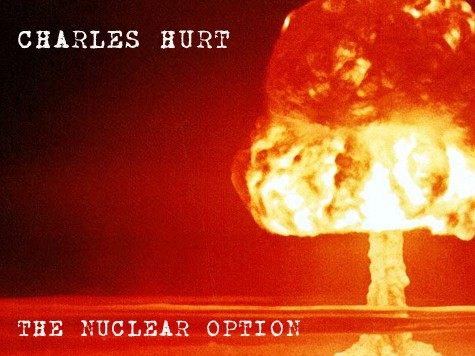Long after the rest of America gave up on the mainstream media, the Old Gray Lady has finally discovered the fake news we have complained about for decades. And as with most things, The New York Times takes it to a level and sophistication that is the envy of the establishment media firmament.
In yet another breathless effort to discredit Donald Trump’s presidency before it even begins, The Times concocted a story over the weekend purporting to prove that the Russians rigged the American election to ensure that Vladimir Putin’s preferred candidate won.
Never mind that it was The New York Times just last month that was leading the witch hunt against Mr. Trump for raising questions about how the election could be rigged. Rigged, Mr. Trump argued, by the establishment political parties, mainstream media, Wall Street and other elites.
All the evidence needed to prove Mr. Trump’s claim lay in the tens of thousands of shocking internal DNC emails hacked by, we are told, the Russians.
The New York Times story, titled “Russian Hackers Acted to Aid Trump in Election, U.S. Says,” is based entirely on — what else? — unnamed sources, including political appointees of current President Obama.
“American intelligence agencies have concluded with ‘high confidence’ that Russia acted covertly in the latter stages of the presidential campaign to harm Hillary Clinton’s chances and promote Donald J. Trump, according to senior administration officials,” the reporters claim.
What is interesting about this lead sentence is that, indeed, the story does go on to make an argument — albeit a terribly flimsy one — that the Kremlin acted covertly to hurt Mrs. Clinton. But nowhere in the story do the reporters even try to stand up the stunning claim that Moscow tried to “promote” Mr. Trump.
Did the Russians run sunny ads about Mr. Trump someplace? Did they release information that cast Mr. Trump in some heroic light? No. The reporters just claimed it in the lead and never mention it again.
Key to their claim that Russia worked to throw the election for Mr. Trump — rather than simply trying to stir up trouble and discredit the whole America election process — is the claim made by unnamed sources that Russia hacked the Republican National Committee in addition to the DNC, “but did not release whatever information they gleaned from the Republican networks.”
The Times sneakily reports: “Republicans have a different explanation for why no documents from their networks were ever released.”
That “explanation” is the emphatic and on-the-record insistence by the RNC that the committee’s email system, in fact, was never hacked. Both Chairman Reince Priebus and spokesman Sean Spicer have been insisting this for weeks, but they are not quoted in The New York Times story. Perhaps they should have insisted on remaining anonymous, and maybe they would have been quoted.
Then, according to the story, another unnamed source briefed by the FBI says Russia tried to hack RNC emails but failed to penetrate the system’s security.
But forget that. Let’s get back to an unnamed Obama political operative quoted extensively throughout the story.
“We now have high confidence that they hacked the DNC and the RNC, and conspicuously released no documents” from Republicans, according to this leaky political administration official.
Literally, you cannot make this stuff up.
Finally, at the very end of the story, The Times appears to shed some light on all the discrepancy over whether the RNC was hacked or not.
For months RNC officials have insisted (on the record) that the committee was never successfully hacked, but that the personal email accounts of numerous Republican Party operatives had, indeed, been hacked.
Those Republican emails, including some hacked from the personal account of former Secretary of State Colin Powell, were published on the DCLeaks.com, a website U.S. intelligence believes was created by one of the Russian cyberunits that hacked into the DNC.
So, according to The New York Times, the Russians did not release any emails hacked from Republicans — except for all the ones that they did release. Boy, this is confusing.
Well, thank goodness The New York Times and all their unnamed sources are on the case. Oh, and don’t forget the political hacks inside the Obama administration also working so faithfully to get some honest answers.
They are now working on a “lessons learned” report, according to The Times.
“That report is intended, in part, to create a comprehensive history of the Russian effort to influence the election, and to solidify the intelligence findings before Mr. Trump is sworn in.”
As Irwin “Fletch” Fletcher says in the epic 1985 cinema masterpiece “Fletch,” “Thank God, the — police.”
Jan. 20 cannot come soon enough.
• Charles Hurt can be reached at charleshurt@live.com; follow him on Twitter via @charleshurt.

COMMENTS
Please let us know if you're having issues with commenting.